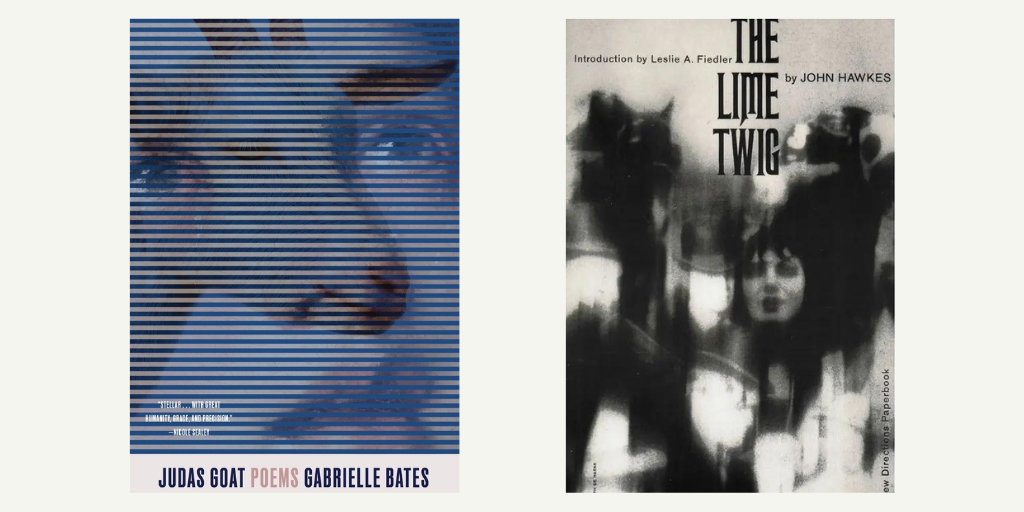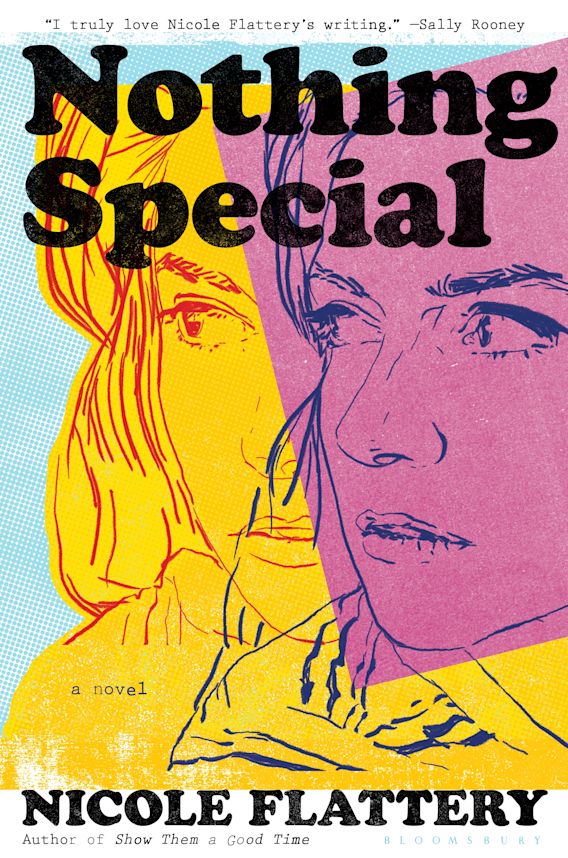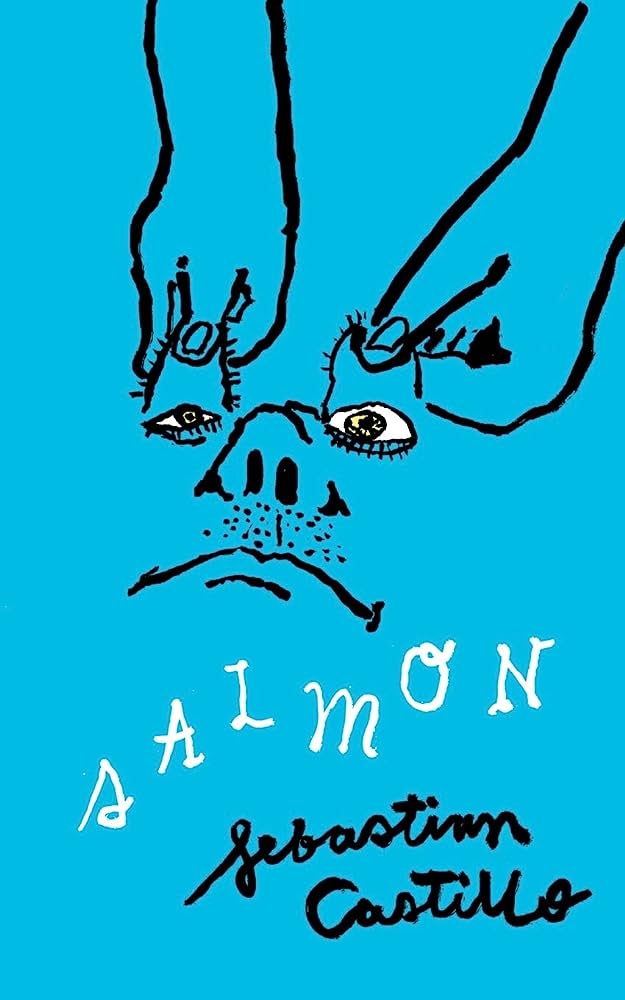Roll out your towel and kick back. Four new selections from the staff of the Sewanee Review.

I spent the first few weeks of June oscillating between The Lime Twig by John Hawkes and Judas Goat by Gabrielle Bates. These two books diverge in their considerations of time and place—England and the American South, respectively—yet I cannot help but find likeness in their related crises of one’s control over language, the neuroses that press up against written and spoken modes of storytelling. They each, in their own way, unsettle narrative scale in proving its intrinsic limits. Both books feature formidable four-legged ungulates too.
The Lime Twig is a lithe novel published in 1961, informed by the open wound of post-war Britain. It’s uncomfortable as it is flagrant, strenuous as it is stressful. Hawkes renders a frame narrative steeped in the spirit of Chaucer’s dream visions, where the electrical impulses of the subconscious mind are enigmatic and oracular: one thread begins with William Hencher and his mother in the aftermath of a firebomb; in another, Michael and Margaret Banks, Hencher’s landlords, are forced into the underworld of horseracing in a series of disparate, assuredly horrific struggles. Later in the book, for example, Mr. Banks watches a man bleed out on a bathhouse floor:
[His] blood still ran, hot and swift and black. His throat was womanly white and fiercely slit and the blood poured out. It was coming down over the collar bone, and above the wound the face was drained and click with its covering of steam.
Hawkes harbors a searing sense of discord on the page, a too-muchness that launches the reader toward an unremitting nightmare rather than some soft, cherubic illusion. Such bursts of violence necessarily undercut the pomp and circumstance of the Golden Bowl—Hawkes appears more interested in the shit shoveling (figurative and literal) than he is in the lavish animals themselves. The centerpiece, though, (the glue, maybe, because there’s wordplay to be had with hooves) is a racehorse named Rock Castle. The silver steed, looming in the periphery for much of the story, is a conduit for the criminal underworld’s anarchic inclinations. After all, it is the plot to steal Rock Castle that severs Michael and Margaret from from their humdrum homelife, and it is the “old and useless horse” that eventually stomps William Hencher to a pulp.
Sidney Slyter, a manic newspaper columnist, is confined to the bite-sized, prologue-like ruminations that tee off each chapter. Even so, these section headers (spun rather ceremoniously as SIDNEY SLYTER SAYS) are Hawkes’s only outward attempts at differentiating truth from sincerity; here, sensation and perception tread a very fine line. And it is baffling and terribly frustrating. Slyter slings inquisitive, albeit lurid headlines like Mystery Horse’s Odds Rise Suddenly. . . or Rock Castle: Dark Horse or Foul Play? This striking sensationalism—far more textured and compulsive than the text at large—differentiates between what is read versus what is perceived, underscoring the novel’s overarching interest in crises of language and interpretation.
Judas Goat is a wicked debut dripping with the dark sap of the deep south. In these pages, poet and visual artist Gabrielle Bates constellates related questions of legibility and identity and perception, of knowing a thing versus naming it: “To the goat, / the shackling pen is no more than another human / room.” The human-animal dynamic depicted in the eponymous poem is mediated by the possibility of the goat’s own slaughter—he is spared only through enacting the scheme of slaughter upon the lambs in tow. The “neck-bell jingling” just beyond the slaughterhouse resounds in those first few lines like the cry of a bleating animal, warning the Judas goat and its human compeer: Know what is possible. Violent suffering is not unique to the horned creature, and the speaker suggests as much, “We, of our ends, are perhaps all this oblivious.”
“Conversation with Mary” amends the story of immaculate conception, framing the virgin queen as both subject and subjected. Each of the ten two-lined stanzas adhere to a dialogic structure, where the call and response sounds off like a religious leader and his congregants. Mary is afforded no punctuation, no typography to clarify her own intentions: “Did you feel rewarded / I hallelujah I assented.” Mary states that “the tenor of [her] joy” is “Choiceless”; submission to God’s will then sounds more like a social contract than some divine, sovereign spirituality. The absence of autonomy lands eternal. “Did it hurt,” the unnamed appraiser asks. Though brief, Mary’s response is left suspended in a terrible air of finality: “Forever.” With attention to Bates’s interests in taming and mastery, the poem sets religious dominion alongside anthropic domestication, further fraying the tidy lines that separate man and beast.
In sifting through complex and careful considerations of womanhood, the sacrament of initiation and adoption—wildness, the fringes of domesticity—Judas Goat attests to the plain fact of suffering without vying for some stale assertion of resilience.
—Luke Gair, Assistant Editor

When I first requested a copy of Nothing Special, Nicole Flattery’s debut novel, I anticipated a coming-of-age dark comedy, convinced purely by the book’s packaging—including both a Sally Rooney blurb that describes the book as “agonizingly funny” and a likening to Ottessa Moshfegh’s My Year of Rest and Relaxation. But Nothing Special is an entirely different animal. Flattery is working in a mode not easily characterized by comparisons or labels. This is not the novel of cynical protagonists or morbid humor but rather one defined best by its carefully rendered, ennui-suffused picture of 1960’s young adulthood. I found Flattery’s fraught descriptions of New York City beautiful if bleak; its analysis of a decade’s zeitgeist accomplished with awareness and strategic scope. And moments such as this one, when Flattery leads with protagonist Mae’s interiority, are the novel’s polestar: “When I opened the elevator cage, I felt a surprising amount of anger towards everyone who had underestimated me. Only I had perfect knowledge of myself, and only I knew what I was capable of.”
At its most literal, the plot centers around Mae’s induction into the counterculture scene via The Factory, studio of a then-burgeoning-artist Andy Warhol. Despite the historical-fiction set dressing, the novel avoids a sense of over-familiarity with its setting and subjects. Flattery establishes authenticity by avoiding art history terms and place descriptors, and while the names of his superstars populate the novel’s pages, Warhol himself isn’t named until the second act. What the novel is about, really, is certain kinds of observation—the ways in which young women are inclined to document the world around them, analyzing faces and bodies and verbal affectation in hopes not so much of deciphering others, but themselves.
Mae’s job in The Factory is to transcribe recordings of Warhol’s cohort that will eventually become his experimental novel. From small shifts in and out of these secretarial scenes, Flattery writes Mae’s voice into sharp focus. Flattery’s writing prioritizes mood over action—Nothing Special is one of those books where not much happens. I have no reservations about this approach; in fact, I admire prose capable of imparting great feeling from very little. Seated among the buzz of actors and models in the studio, Mae absorbs all and interprets it for us with conviction. During her first visit to The Factory, Mae notes, “I watched a woman with long blonde hair get a haircut. She took the scissors to the ends herself. The strands hit the floor. She showed no emotion, as if the act was in service to some greater purpose. I knew the same transformation was available to me.” At work, she overhears the chatter of women coming and going: “They talked about parties as if they were sweets they were trying to suck dry.” Flattery creates movement that is buoyed in and informed by the act of information gathering—not only the significance of who Mae listens to, and when, but how the insights extracted from such instances inform Mae’s conception of self.
Mae’s perspective is at times both shrewd and naïve, but there is never a manipulative play for pity, nor is there much that would make a reader involuntarily roll their eyes. This refusal to write at the expense of the teenage girl is evidence that Flattery has crafted her coming-of-age novel with exceptional nuance and sincerity. Flattery’s propensity for writing womanhood and female friendship, defined in equal parts by sardonicism and alliance, is a highlight of Nothing Special. Mae and her coworker Shelley are bound by their experiences as women and the performance their environment demands of them. At a party one evening, Mae narrates:
I was frightened; frightened of the prospect of losing even the modicum of control I had. The person I presented myself as at these things: I was seductive, disinterested. The practiced disinterest was something I learnt from the tapes. I was fluent in it now. Shelley and I danced obediently, we danced for hours, as if we stopped, something might devour us.
Yet there is a sense of competition, too, a devolution into female rivalry, particularly as Mae and Shelley collaborate on the tapes’ transcription. Flattery explores the more tenebrous aspects of relationship and the self with unadorned, almost stream-of-consciousness prose:
I was still interested in [the tapes] but something else had crept in: an interest in myself. I put more and more of myself in the book—misspellings, pauses where there weren’t any, my own emphasis, my own in-jokes. I had to leave a mark. You couldn’t be around egos like that for so long and not develop your own. It was my own performance.
There is an uncanny knowingness to Flattery’s approach. Her dead-on descriptions of fluctuating social and artistic capital suggest Flattery is an astute observer herself, capable of imparting emotional resonance from behavioral minutiae and abstract concepts. There is an undeniable melancholy to Nothing Special, a wistfulness catalyzed by the turbulence of an era, although the novel’s scope restricts these sensations to Mae and her familiars alone. While these decorations—the avant-garde films, the subway, the stolen fur coat—are provocative and alluring, Flattery’s novel is unsuspectingly contemporary, mapping out timeless interpersonal anxieties about relationships, the workplace, and even art making. Yet Nothing Special’s most familiar feature of all is one as devastating as it is enduring—the voyeurism and performances that so often necessitate our departure from girlhood.
—Hayden Dunbar, Assistant Editor

While they are perhaps my favorite form of fiction, I rarely get to dig into novellas. My work mostly requires me to read short stories, and the big, chunky novel is still what I see most in critical discussion or on bookstore shelves. So when I caught wind of Sebastian Castillo’s SALMON, a comic absurdist hybrid novella from Shabby Doll House, I sat in eager anticipation.
The premise is simple enough: a young poet—“Poet” being the only name offered to the reader—decides to leave home after finishing his education, travel to a foreign country called SALMON, and—in his words—“say no to the dailiness of life.” The first half catalogues the Poet’s departure: he makes his arrangements to leave and to have his parents cared for, and then begins the journey by train and boat to his new home. The second half is written as a play, the dialogue punctuated by stage directions and divided into scenes upon which the surreal island the Poet and his friendly doppelgänger Sebastian find themselves. In every sentence, I found reasons to laugh out loud, or surrender myself to its nowhereland sensibilities, or shift my understanding the bounds of what this novella/play might be—it’s thrilling through and through, especially in some of its silliest moments. One chapter that completely enraptured me featured a beetle dying in a bowl of soup:
I noticed a solitary beetle on the face of our dining counter—it must have found its way on board, and was trundling along with a determined, robust gait. It inched toward [the old man’s] soup, and without the grandfather noticing, I watched as the beetle climbed up the side of the bowl and perched itself on the rim. It perhaps fancied itself a bit of a swimmer, gazing down at the soupstuff. I wouldn’t mind a bit of that!, the beetle had thought. And then by dint of its own foolish pursuit of pleasure, had actually dove into the puree, and killed itself, boiled to disintegration by liquid allium.
The Poet then asks the old man for the soup, and commits himself to writing a poem about the beetle, before promptly forgetting about it for the rest of the book. Its linguistic sensibilities are so flowery but its stakes are so low—a juxtaposition that creates these hilariously rich sentences describing utterly quotidian events, at least for the first half.
The book feels like a Künstlerroman, and the driving force behind the Poet’s travels is discovery: both in the world and of the self. But Castillo subverts the expectations of this form through this elevation of dailiness and making the fantastical parts more of a hassle than a wonder. In abandoning everything he knows, the Poet seeks to make intentional choices at every point in his journey rather than let himself be carried down some river of fate. It’s evidence, perhaps, of a young person’s drive in life, and of an artist’s drive in work, to make these choices as fully as possible. Naturally, every choice comes across as a little odd, a little performative, a little desperate, a little selfish, but somehow wholly necessary in the pursuit of this aim. The Poet lives in the shadow of his dead sister, making the drive to forge his own way even more urgent. Early in the book’s first half, the Poet introduces his elderly adoptive parents to the errand boy whom he hired to replace him as their caretaker. But they simply cannot handle it, resulting in ridiculous silent tantrum of feigned sleep: “Out of desperation, or perhaps embarrassment, I laid atop my father’s body, and attempted to pry his eyelids open, which he resisted—essentially proving this was a mere performance, one last petulant, albeit silent, cry of resistance put forth to humiliate me.” For every character—except perhaps Sebastian—existence is a performance. And while such scenes are full of humor, Castillo never approaches these performances with anything but tenderness and generosity for his characters and their humanity.
Castillo also wrestles with the question of performance across his two selves, whether this is just a fact about characters or a fact about people as well. At the end of the novella, the Poet and Sebastian debate this fear while journeying into the island’s core to find time-space-altering mushrooms:
POET: Every new thought is something new to think about.
SEBASTIAN: Each one feels more serious than the last.
POET: We’re bad clowns when we aren’t working.
SEBASTIAN: Everyone is a worse version of themselves when they aren’t working. Even clowns.
POET: We’re still human?
SEBASTIAN: We’re plastic.
But even in the full version of this exchange, there’s not quite an answer. Instead, what Castillo arms us with is a strategy by which to look for the answers, and to live brashly regardless of them. The Poet, for all his naïveté and Sisyphean struggle to avoid stocking a wine cellar, does understand that living consciously—albeit absurdly—makes living an art.
—Carlos Zayas-Pons, Editorial Assistant
